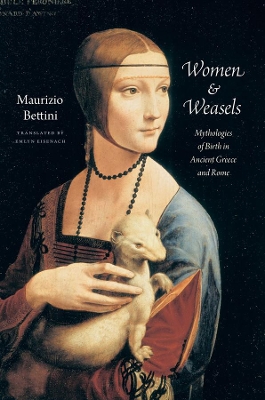Reviewed by nannah on
Book content warnings:
cissexist/lesbophobic text
goes into the really misogynistic mindset of the times
The first thing you have to know if you're interested in reading this book is that it's extremely academic! The language, the information, etc. It's all tailored to a scholarly audience. I think it took me about thirty minutes to read 5 pages and retain all the info.
The book is centered around one myth: the myth of Alcmene's birth to Heracles/Hercules (I'm not really versed in Greek Mythology; sorry if this site isn't completely trustworthy). The basic story goes that Zeus got Alcmene pregnant (with Heracles), and he announced to everyone that Alcmene would give birth that day to a son who would rule everyone around him. Jealous Hera tried to prevent Alcmene from giving birth until the next day (thus changing Zeus's "prediction"), but a weasel - or a woman named Galanthis/Galanthias tricks her or her "minions", so that Alcmene does indeed give birth to Heracles on the announced day (and Galanthis/Galanthias is punished by being turned into a weasel).
Whew. Greek myths are ... weird like that. There are so many different versions and variations on one single core story. Which is why there can be one huge, academic text on one single myth!
This book goes into the roles of each character in the myth, how women were treated in Ancient Greece, how weasels were seen and regarded back then, and how the role of midwives and midwifery has changed throughout the years. - And this is just the VERY tip of the iceberg. I can't even tell you how in-depth this book gets.
If you're interested either in weasels or the way women were treated in ancient Greek or Roman cultures -- or even in midwifery, this book is a definite must read. But you have to devote a ton of time to it.
Reading updates
- Started reading
- 3 September, 2018: Finished reading
- 3 September, 2018: Reviewed
